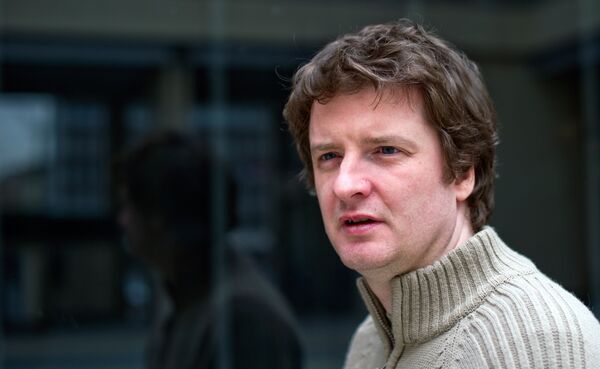Russia’s chief doctor was right. Going to a protest rally in near-Arctic like conditions is bad for your health. Especially if you were already ill. As I was when I joined some 120,000 people on Saturday at an anti-Putin march that ended up within shouting distance from the Kremlin.
Of course, Russia’s head medic, Gennady Onishchenko, is renowned for the politically tinged nature of his health warnings, once banning wine and mineral water from Russia’s biggest neighborhood enemy, Georgia, over its “poor quality.”
So, it’s not inconceivable that his advice might have had more to do with his worries for the future of Vladimir Putin, than for the actual health of the opposition protesters who packed downtown Moscow.
Not that, of course, he seems to have put anyone off.
And that has to be a bad sign for Putin. I mean, it’s easy to protest in Cairo. Even fun at times, I’d wager. But rallying in temperatures of around minus 20 degrees Celsius (minus 4 degrees Fahrenheit) is anything but. So when tens of thousands of people are prepared to risk frostbite to demand you quit your job, that’s a pretty good reason to be worried. (Not that Putin is likely to stand down as Russia’s “national leader” anytime soon.)
Of course, Russians are used to the cold. But as protest leader Boris Nemtsov pointed out on the eve of the march, not many Muscovites spend three hours out in it, usually rushing from heated apartment to workplace and back again.
I’m pretty used to winters here, as well, but I also tend not to spend too much time tramping around in the ice. So on Saturday, I stuck on my long-johns, two pairs of socks, more sweaters than I thought I owned, and headed off to cover the next stage of Russia’s Snow Revolution.
Protest leaders had had the good sense to turn this protest into a march, rather than the two previous simple stand-around-and-shout rallies that took place in December. When it was a lot warmer.
And the folk giving speeches kept things brief as well. Left Front leader Sergei Udaltsov was the hit of the day, managing to complain about his coat (“I’ve been wearing it for three years!”), thank folk for supporting him while he was behind bars in December, pour scorn on allegations that the protesters are backed by the United States and rip up a portrait of Putin. All in a little over three minutes.
Veteran Russian rocker Yury Shevchuk rounded things off performing a brief acappella version of the nation’s favorite song about the cold - “Oi Moroz, Moroz” – (Sample lyric – “Hey, frost, don’t freeze me!”
He then brought out his acoustic guitar to perform his group DDT’s twenty-year-old hit, “Rodina.” The crowd, even those not too keen on Shevchuk, danced in the snow.
I enjoyed his solo version of the track much more than the overly bombastic original, but I was particularly impressed with how he managed to play the guitar in such biting cold. (How did he do that? Did he grip hand-warmers for hours before going out on stage?)
And that was pretty much it. It was, as I may have already mentioned once or twice, pretty cold on Saturday, and folk were keen to get home - or to a bar, café, wherever - as soon as possible.
But after such a stunning show of strength, there can be no doubt now that Russia’s protest movement is here to stay and grow. And things, in all sense of the word, are likely to warm up after the March 4 elections.
The views expressed in this article are the author's and do not necessarily represent those of RIA Novosti.
From lurid tales of oligarch excess to scare stories about Moscow’s stranglehold on Europe’s energy supplies, the land that gave us Roman Abramovich and Vladimir Putin is very rarely out of the news. But there is much more to modern Russia than billionaire tycoons and political conspiracy. Marc Bennetts’ weekly column, Deeper Than Oil, goes beyond the headlines to explore the hidden sides of the world’s largest, and often strangest, country.
Marc Bennetts is a journalist who has written about Russian spies, Chechen football and Soviet psychics for a number of UK newspapers, including The Guardian and The Times. He is also the author of Football Dynamo: Modern Russia and the People’s Game (Virgin Books).
Deeper Than Oil: The Twitching of the Zhir
Deeper Than Oil: The Red Flag Still Flies High in Russia
Deeper Than Oil: Now even the stars and the heavens turn away from Putin
Deeper Than Oil: Wall on wall battles
Deeper Than Oil: Alternative Reality Russia
Deeper Than Oil: Ripping adventures stories from 2011
Deeper Than Oil: The Skoptsy and striking off the serpent
Deeper Than Oil: Moscow protest fatigue
Deeper Than Oil: I’d have broken the habit of a lifetime for United Russia
Deeper Than Oil: Why I’m still glad Russia got the World Cup

